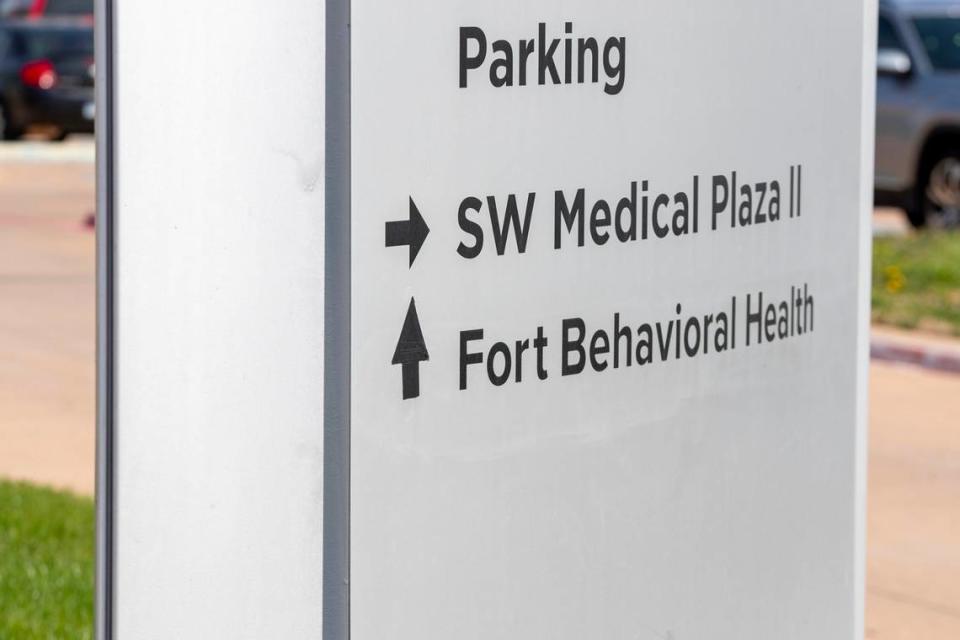Fort Behavioral Health abruptly ends remaining treatment programs; patients ‘kicked out’
Fort Behavioral Health, a residential treatment center that shut down its adolescent programs after a Star-Telegram investigation into years of abuse and neglect reports, is ending its remaining adult programs, too.
The center on Fort Worth’s southwest side had been providing 24-hour residential treatment to adolescents with autism and other mental health diagnoses, and to both adolescents and adults with substance use diagnoses.
But in October, about two weeks after the Star-Telegram published an investigation into years of abuse and neglect claims against the adolescent program, Fort Behavioral shut down the adolescent side of its programming and sent home the minor patients in those programs.
The adult program for substance use treatment continued. But now the adult program is shutting down, too, according to multiple sources. The facility’s last day is Jan. 31.
🔍This story came from a news tip. Got one? Pass it along to our newsroom.
Staff and patients were given little notice about the closure, according to several people. Two laid-off staff members spoke to the Star-Telegram and requested anonymity in fear of retaliation.
One said that a patient was admitted into the program as recently as Jan. 21 — one or two days before staff were told about the impending closure.
She said such a short stay is harmful for patients, because their treatment is cut short and it could be more difficult to get their insurance to approve a second in-patient stay elsewhere.
“The first rule of thumb in counseling is, ‘Do no harm.’ And I think they did harm,” the staff member said of Fort Behavioral. “And had us do harm, not knowing.”
The closure of the adult program comes one year after problems became evident at Fort Behavioral.
Texas state regulators temporarily shut down Fort Behavorial’s adolescent unit in January 2023 over concerns of abuse and neglect, but then allowed it to reopen 30 days later on a one-year probation. The Star-Telegram’s investigation, published in September, showed that Fort Behavioral’s adolescent programs had been cited repeatedly by the state for incidents where children were harmed or abused. The center also struggled with underreporting of incidents to the state and with chronic understaffing.
When the facility shut down its adolescent programs in October, supervisors said that adolescents would be readmitted in the spring, the two staff members told the Star-Telegram. But with the adult program now closing, too, its unclear whether that will happen.
‘It’s traumatizing’
Alicia Charbonneau told the Star-Telegram that her 17-year-old son, Jayden, was admitted to the adult substance use program on Jan. 11. Less than two weeks later, he called and said he needed to be picked up as soon as possible.
Charbonneau picked up her son on Jan. 24, she said, and wasn’t given paperwork at the time about the shutdown or about her son’s discharge. When she asked a staff member what was going on, she said, he told her that the facility was shutting down for financial reasons.
Charbonneau said she worries that the sudden closure so early in Jayden’s treatment will have permanent impacts on her son.
“I think it’s traumatizing to go into treatment and not get treated, and get kicked out,” she said. “He was really getting into it, and it pissed me off because they really let him down.”
The CEO of Fort Behavioral, Stephen Mallick, did not respond to Star-Telegram emails requesting comment. The owner of the facility, billionaire and co-owner of the Los Angeles Dodgers Bobby Patton, also did not respond to Star-Telegram requests for comment.
In September, when the Star-Telegram requested comment from Patton about its investigation into Fort Behavioral’s adolescent program, Patton replied, “I don’t know much except that it doesn’t seem very profitable.”
A person who answered Fort Behavioral’s admissions line declined to let a reporter speak with an administrator but said that the facility is not accepting patients, and that patients are being discharged until Jan. 31.
“I can tell you that it was a business decision, and that’s the only information we have at this time,” the admissions line worker said.
Both laid-off staff members who spoke to the Star-Telegram said that they were not given a reason for the shutdown. They were notified about a week and a half before the closure and were given unemployment paperwork. Both were also told that their health insurance would end Jan. 31 and that they would not be paid for accrued paid time off. This is repeated in an email that facility administrator Tricia Martinez sent to staff, which was obtained by the Star-Telegram.
The former employees said that Mallick, the CEO, did not meet with staff about the closure and that they have not seen him since the announcement.
“We have our backs against the wall,” one staff member told the Star-Telegram. “This is not right at all.”
In the all-staff email, Martinez thanked employees for their work and provided a list of other facilities that are hiring.
Tiffany Young, a spokesperson for the Texas Health and Human Services Commission, said in an email that chemical dependency programs, such as Fort Behavioral’s, are required to notify the state “prior to or immediately upon closure.” As of last week, Fort Behavioral had not notified the state of its program closure, Young said.
Young also said that the facility has not relinquished the license for its adolescent program, which closed in October. The facility did, however, notify the state about discharging adolescent patients in order to “reassess their programming and staff,” Young said.


